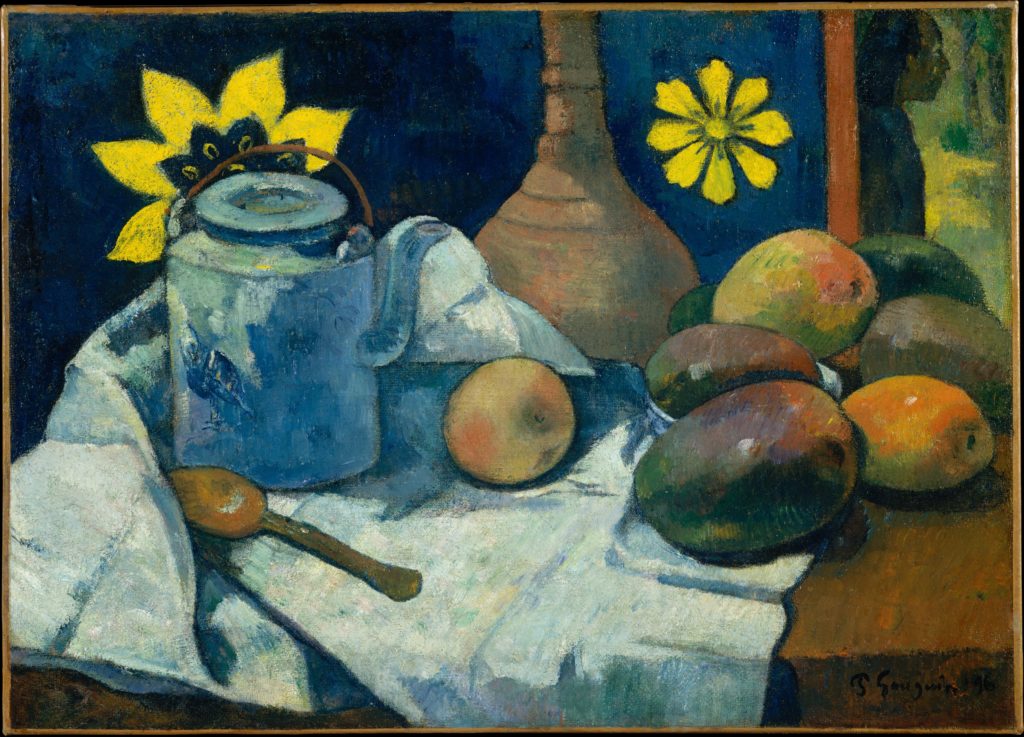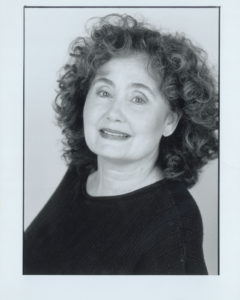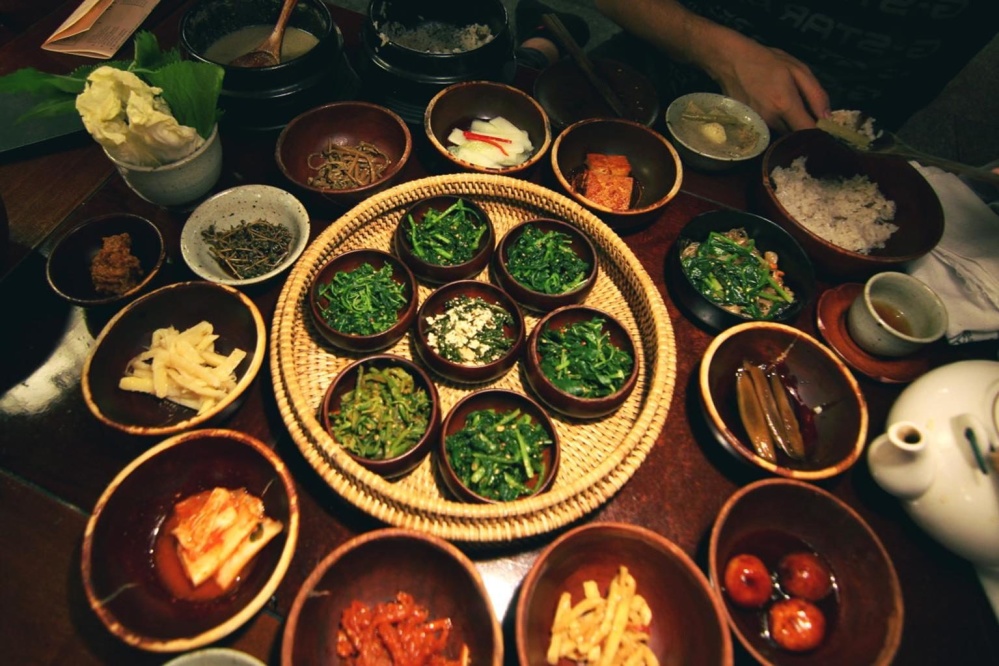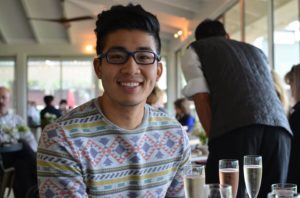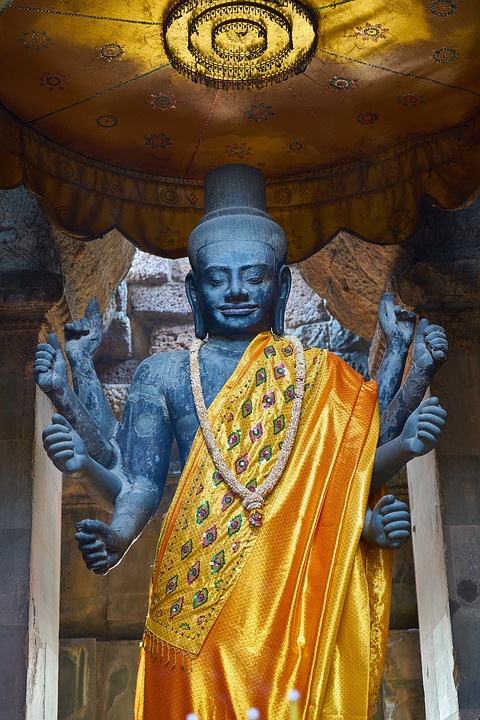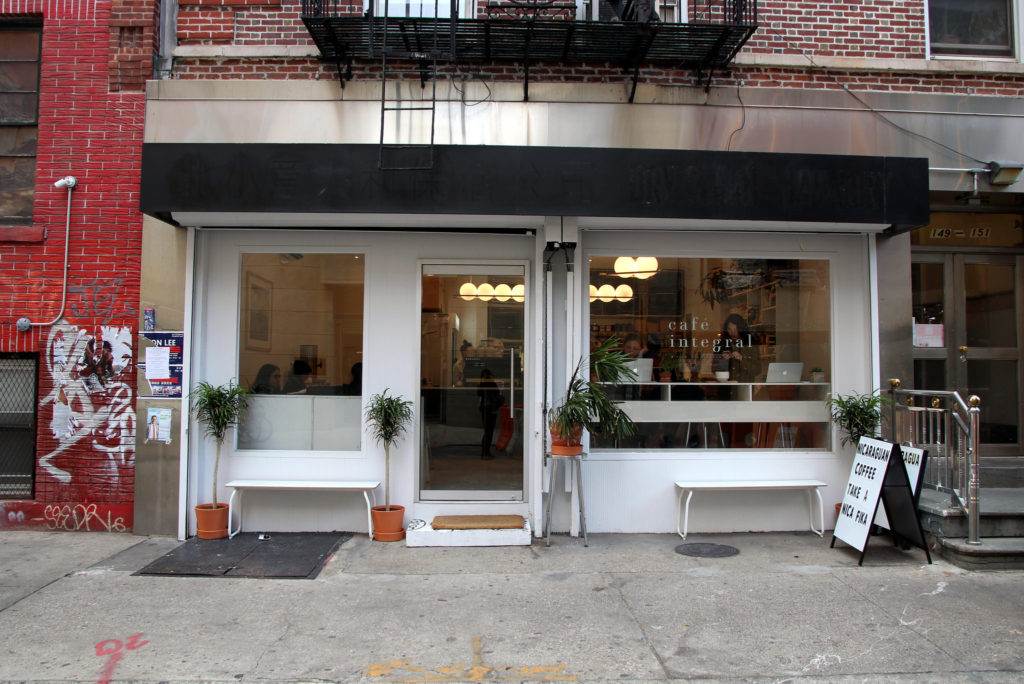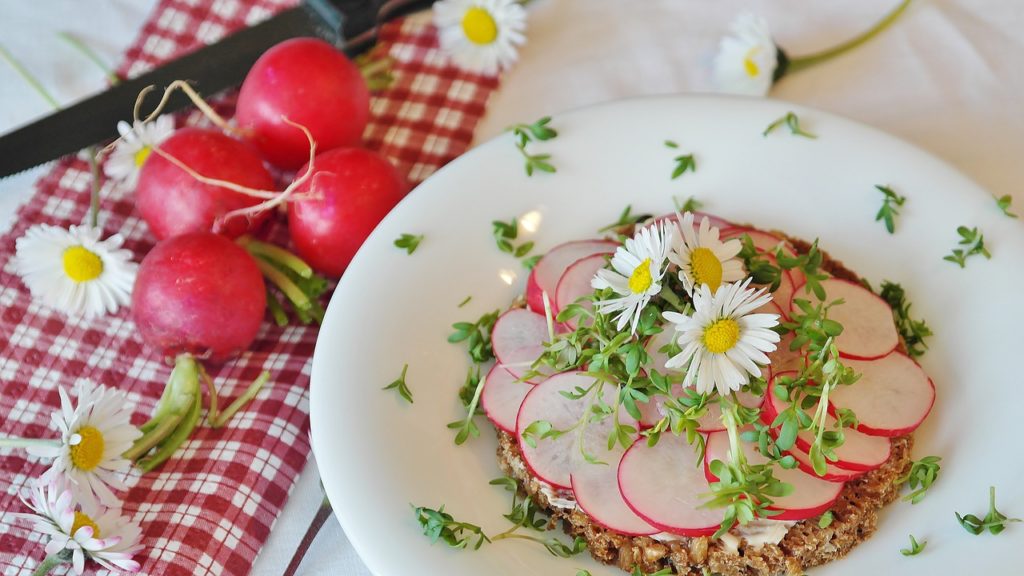I was born in the suburbs of Orange County, California less than a two hour drive away from the Mexican border. Despite being the offspring of two very traditional Korean parents, I would say I’m definitely more American. Not that I don’t like being Korean–– I’m as proud as they come. But America to me is a country defined by its collection of different identities and traditions. Which means while Korean a big one, it’s not the only culture I was influenced by. And in all honesty, before anything, I’m a Californian at heart. And anyone in Southern California can tell you, there’s nothing more SoCal than good Mexican food.
Where I come from, tacos aren’t just cuisine–– you could say that your favorite taco place defines you as much as your name. I grew up knowing that some of the best tacos you could ever eat would only set you back a dollar per corn tortilla goodness, and that if I were ever craving said goodness, I’d probably only be 10 minutes away maximum from a decent taqueria at any given time. There were taco trucks at every school sporting event, countless after school drives to local joints, and an innumerable amount to-go orders consumed in my dining room; but that only scratches the surface of my long affair with the taco kind. So when I moved to New York for college and everyone told me I’d be doomed in ever finding a taco worthy of my Cali-Mex standard, I wept.
My journey to college looked a lot different from what I always imagined it would be. Yes, I took the obligatory trips to Disney with my closest friends, and sure I went to the beach a couple times, but nothing I did was enough to fan away the dark cloud in my otherwise sunny California summer: I might not be going to college. It took me the entirety of the summer to convince my parents to let me move to New York to pursue a higher education. I was already committed to The New School, but in the then-hindsight of my ever doting mother, I was still too young to leave her side. As for my dad, he was waiting for my mom to reject me so he wouldn’t have to, and I don’t think he ever thought for a second that my going was a possibility. It was a standoff but I, knowing that I got my stubbornness from my parents, was starting to feel I wouldn’t be successful in this particular battle; I was getting destroyed both in the debate, and emotion.
The alternative to winning my case was my worst nightmare: a community college well within the parameters of a three mile radius I could draw from my high school, which would also encompass my K-8 school. I had once told my best friend (before I knew the parent-war would occur) that having to grow old in the confines of the school-radius-neighborhood would be a punishment worse than death. I wanted to leave. There was always too much of the world to see, and too little my imagination could do to daydream me away from my never-changing surroundings. I could have committed to the full-ride scholarship I had received for a state college in California, saved myself the trouble of a summer long argument, and stayed with all of my closest friends; it just wasn’t what I wanted for my future. New York was the escape I’d always clichely dreamed of, but never thought I’d have the chance to perform–– and it seemed like I never would. By the end of my summer break I was enrolled to community college and resigned a life of more sameness. But as if my life were a drama intended for public appeal, as opposed to a self-important narrative, my parents gave me the okay to book a flight ticket to New York and The New School. Three days before the start of freshman orientation week.
The one rule that my mom intended for me not to break when I ran off to the other side of the country for college, was the one about having a boyfriend. I ended up dating the first boy I talked to on orientation day, whom I met just a day after I arrived to New York City. Though the guilt of my mother’s words made it take a month to say yes from the first time he asked, there was something cathartic about being able to do something I wanted without permission; though it wasn’t out of spite, it felt good to be in control after the summer of fighting. Truth is I had never really thought breaking rules was an option, and college was my first time away from California without my lawmaker. With this new freedom I fell in love in and with my surroundings, and I knew soon it would be hard to convince me that I didn’t belong in New York.
Chris, my Korean-born, Beijing, Shanghai, Malaysia-raised boyfriend, had a life the opposite of mine. His was filled with travel not only to new home cities, but all over the globe: Malawi, Indonesia, Amsterdam, Boston, etc. He became my adventure buddy, and just as important to us as the landmarks, were the new restaurants we could explore. I soon found out that his upbringing meant he didn’t crave meals the same way that I did, he just liked eating. So on our first date we went to a Korean restaurant at my request, but after that it didn’t take long for me to start asking for Mexican food. When I did, he was as happy to experience a new culture as I was to be eating my home staple. So after taking the suggestions from those around me and the helpful Yelp app, we began a taco tour in search of the best Cali-Mex taco in New York.
The first place we went was a recommendation of a new-New School friend and fellow taco enthusiast. He was also from California, so I had high hopes. Tacombi, situated near the heart of Greenwich Village, was bubbling over with people when we arrived. It was nighttime and the ambience was festive, with mood lighting that revealed pops of strikingly colored letters and lively patterns on a bright white wall. The restaurant definitely wasn’t the hole-in-the-wall, you’re-here-for-the-food kind of vibe that I was expecting, but it was my first time at a Mexican food joint in New York and I didn’t mind the new experience. I was admittedly off-put by their 12 dollar guac and chips, but I was there for the tacos so I crossed my fingers and hoped for the best.
When it comes to judging tacos, I would break it into three components: tortilla, meat, and toppings. I believe for a good street style taco the tortilla has to be corn. I want it to be slightly charred with a nice soft-yet-brittle chew, which means being able to bite off a piece easily without ridding chewiness. And I want to be able to smell it. A good tortilla smells like what a wake-up yawn feels like, comfortable and familiar– drool optional. As for my meat, I usually go for carne asada, beef arguably the most basic and standard of the grilled taco meats. However I don’t like my steak neat and cubed, the beef should be unevenly chopped about same size as the nostrils that they’re heading towards. They should also be cooked long enough to get dark brown and taste savory erring on salty to counter the onions they should be served with. For toppings, I think that all you need is lime, white onions, and cilantro. Anything else, like decent salsas, is optional but those three are essential. I don’t need a fancy guacamole or crema to mask the delicate flavors of the tortilla or drown out the texture of the meat. If I’m being extra picky I also want to be served on a double-layered paper plate, but out of all of these this is the most trivial.
At Tacombi I ordered two carne asada tacos, and when they came out I was intrigued by how small they looked. However they appeared delicious and I definitely don’t mind a smaller portion if I’ll be compensated in taste. My first bite was good but ultimately underwhelming. Their tortillas were above par, but not prepared the way I liked. The steak meat was tender and sweet in a way I wasn’t used to, but overall too lightly seasoned for me to judge regardless. On top was their salsa tangy and tart but not the most complimentary, and there was hardly any onion and cilantro anywhere. The verdict stood for both tacos. Chris, who had never had a taco outside of Taco Bell before said it was definitely okay, but it wasn’t what he was expecting after all my excitement. I told him not to worry, and then proceeded to say something that I would go on to repeat often in my first few months in New York: “Tacos are better in California.” It was at least true in this case. Tacombi was trying too hard to sell me an experience through their interior decorating, and not enough through their food. Because it was so unbelievably busy, it could very well have been an off day, but I haven’t been back since.
Otto’s Tacos in the East Village was next. Awkwardly wedged between the back of a stranger’s chair and a window bar, my second experience with the New York carne asada taco was slightly better that my last in terms of taste. Otto’s was closer to tasting like home but something about the meat wasn’t right for me. They were slightly fatter than I’d liked, and oddly soft, not to be confused with tender, as if they’d been soaking in water after coming of the grill–– which is impossible since I watched them being made. Like Tacombi the carne asada was too sweet and I was starting to get fed up with paying four dollars per taco for a taste that I wasn’t asking for. I said all this to Chris, who didn’t know what to base his taste critiques off of, but knew he didn’t like the customer service. Trying out places with such raving reviews on Yelp was telling me that truly, tacos are just better in California.
For my next taco stop, I received a recommendation from a professor. After the end of class waiting for an elevator, we began to talk about my jacket which read University of California Irvine (UCI). It was my mother’s alma mater as well as the college of most of my closest friends back home. The professor told me he had attended UC San Diego and we soon got talking about the differences between our current and past cities. At one point in our conversation, I asked him if he knew of any good taco places. When he said out of all his time in New York, Los Tacos No.1 was by far the best, I decided that I would keep my hopes in check but that I would also definitely visit that weekend. The next Saturday Chris and I made our way down to Chelsea Market for the first time and hit a line that we soon figured out was for our recommended taco spot.
The first thing I noticed while waiting was that Los Tacos No. 1 comes with all the frills: guacamole, cheese, pico de gallo, two different salsas, limes, cilantro, onions, etc. I started dismissing it right then. And when I saw that they had another four dollar taco, I inwardly groaned. But the line said that this was something hopefully worth paying for, so I gave them my debit card, which I’m still getting used to using, and ordered two carne asada tacos. Though I couldn’t admit it that first time, every single component that I had looked down on came together to make one of the best tacos I’d ever eaten. When I took my first bite I almost swore, and I’m not big on curse words. My mouth was so confused. My taco was overfilled. The meat was still too sweet. It didn’t taste like anything from California, the golden standard of my taco, and yet I was definitely enjoying it. It shouldn’t have to have so many ingredients, I thought to myself, but there was not a single thing that I would have taken out. The cold creaminess of the guac with the perfectly sized chunks of fresh pico de gallo, heartier, earthier bean-based salsas to cut the amount of acidity from the limes. Los tacos was a juice soaked finger, messy, falling ingredient, absolutely-full-mouth affair. Chris was eating like it was the end of the world, and after we were done, he went back to buy two more. I was dumbstruck. It was just so different and infallibly delicious. But when we were cleaning up I started explaining, that no matter how good Los Tacos just was, it’s still not as good as a California taco. Sure New York had made a valiant effort, but all tacos taste at least that good in California for a dollar, so there’s your difference, I concluded. You’ll see, I told Chris.
When I went home for winter break I took Chris with me. I was nervous, not only did I have to leave my dream city, I was bringing my should-not-exist boyfriend along with me. The whole car ride from the airport I began to talk my dad’s ear off about how amazing New York was and how much I already missed it, both because it was true, and to prove a point about how good it was that I left. As much as I had wanted to see my family, I hadn’t missed California, and I dreaded how long I was staying. After I got home and settled in, I left to get some tacos.
I went back to my local spot, and thankfully my order was just as good as I had remembered it. It had everything that I listed that I wanted in a taco. But I found myself surprised at myself for missing Los Tacos too. It was surreal how fast the feeling hit me. Eating a taco from home made me realize as much as I loved New York, my trying to reject how much I missed home had led me to make everything a competition neither city could win. I wanted to be forget what it was like to be in a familiar environment, but my high standards for my tacos were all about the feeling of familiar. I figured my taco tour wasn’t so much about finding a good taco, as it was about finding a piece of home in the big city without having to think about why. I could hide behind the word craving instead of homesick. It was hard to realize I wasn’t starting a new life in the city, but instead making myself a stranger to my time in both cities by refusing to let either satisfy me because of the other. After trying so hard to escape, I felt guilty to admit how much I sometimes missed the luxury of knowing every corner of a neighborhood, or how the tacos I ordered would taste.
My mom met Chris when she came home from work later that day. To my surprise, she liked him almost as much as I do, if not more if that’s possible. All the anxiety I’d had about not being able to find a happy medium between both cities started to relieve. One city didn’t have to cancel out the other, or hold all the things important to me. Going back to New York after the realization felt different from the last time. I wasn’t so rushed to be a new version of myself who couldn’t enjoy becoming familiar with things. A few weeks into coming back, Chris and I discovered a Taqueria near Otto’s that we hadn’t tried. Taqueria Diana is so far the most recent stop of our taco tour. It tastes good. The meat is still on the sweeter side but I’m growing to like it, and out of all the tacos I’ve tried here, it tastes the most like home. And I’m glad. Though Los Tacos is definitely worth the walk to Chelsea, it’s nice to know that I’m still ten minutes away from a (more than) decent Taqueria.
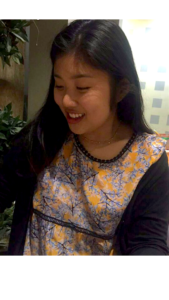 Rachel Lee is a current student at The New School’s Eugene Lang College where she studies economics. As a Millennial born and raised in California, Rachel enjoys listening to political podcasts while taking long walks on the beach. Her work has previously been featured in HoneySuckle Magazine.
Rachel Lee is a current student at The New School’s Eugene Lang College where she studies economics. As a Millennial born and raised in California, Rachel enjoys listening to political podcasts while taking long walks on the beach. Her work has previously been featured in HoneySuckle Magazine.


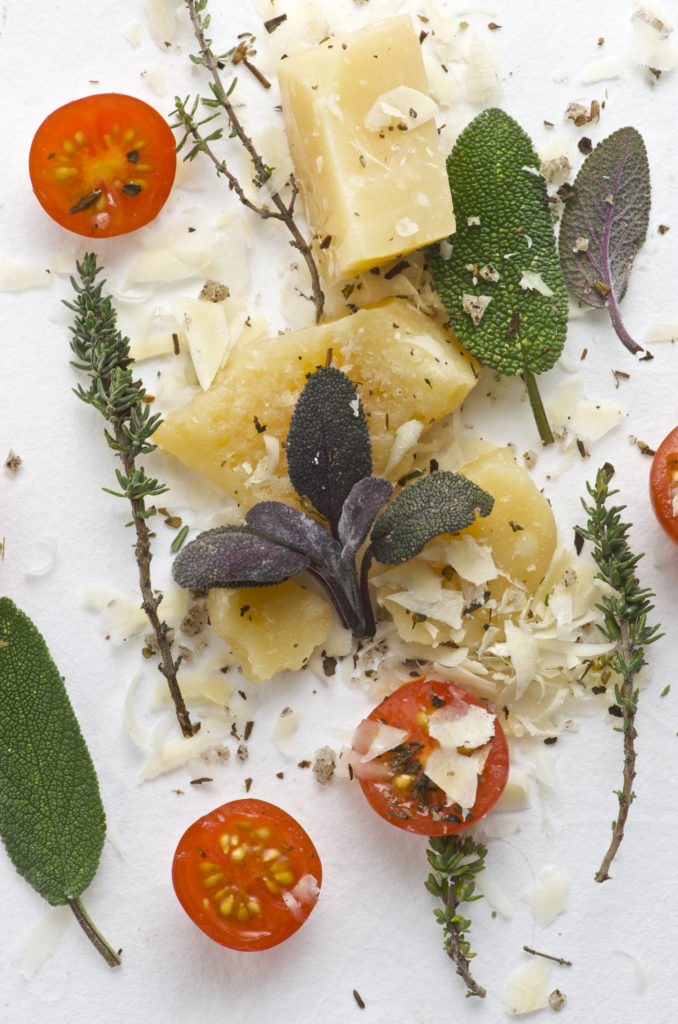
 Kim MacQueen is the author of the novel Out, Out: Women and Apes and has published essays, most recently, in The Morning News, Wisdom Daily and the Stonecoast Review. She teaches magazine publishing at Champlain College in Burlington, Vermont, and has recently completed the MFA in Creative Nonfiction at Bay Path University. Come and visit on
Kim MacQueen is the author of the novel Out, Out: Women and Apes and has published essays, most recently, in The Morning News, Wisdom Daily and the Stonecoast Review. She teaches magazine publishing at Champlain College in Burlington, Vermont, and has recently completed the MFA in Creative Nonfiction at Bay Path University. Come and visit on 